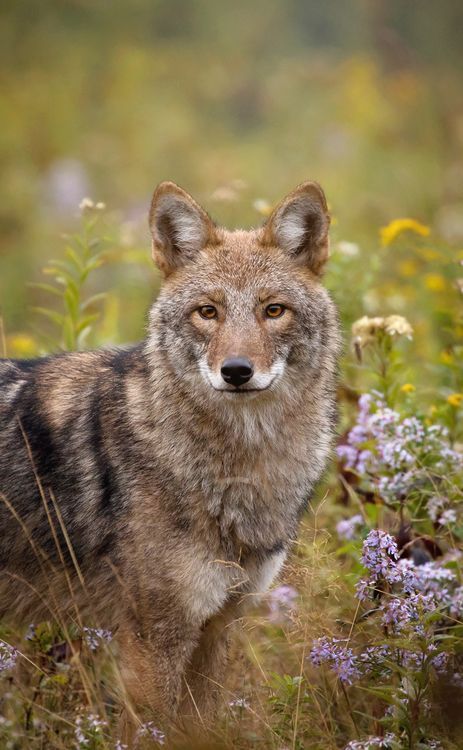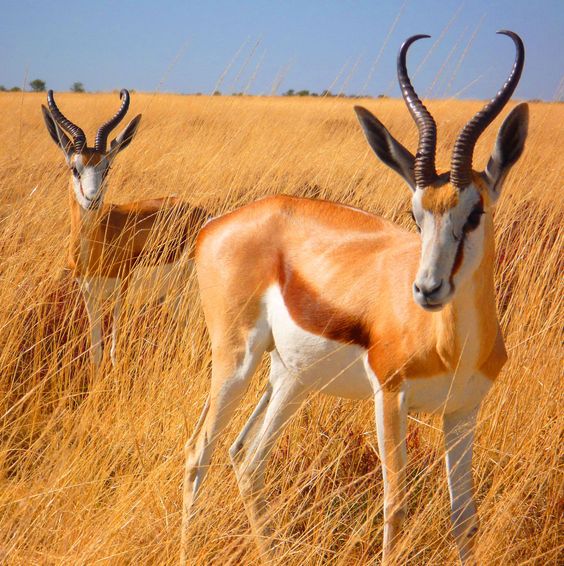Some of these fly through the air, some run on land. Most of the fastest animals are birds so our list below includes a selection of the fastest of all these different types of animals.
Here are Top 10 fastest animals on the planet.
1.Leopard
One of the world's most-recognizable felines, known
particularly for its speed. Cheetahs' dashes have been measured at a most
extreme of 114 km (71 miles) every hour, and they routinely achieve speeds of
80– 100 km for each hour while seeking after prey. Almost every one of the
cheetahs staying in the wild live in Africa.
Cheetahs are covered as a rule with little dark spots on a
foundation of light yellow and have a white underbelly. Their countenances are
recognized by unmistakable dark lines that bend from the internal corner of
each eye to the external corners of the mouth, similar to a well-worn trail of
inky tears. Cheetahs have a long, slim body estimating 1.2 meters (4 feet),
with a long tail (65– 85 cm [2– 3 feet]) that by and large closures in a white
tuft. They are around 75 cm tall at the shoulder. Weight ranges from 34 to 54
kg (75 to 119 pounds), males being marginally bigger than females.
2.Greyhound
The greyhound is canny, delicate with a peaceful air, and
notwithstanding its awesome athletic capacity, is substance to spend the vast
majority of the day dozing. Short on perseverance it requires less exercise
time than generally puppies.
Greyhounds are the second fastest sprinters of all land
creatures. They can go from zero to their best speed of 45 mph in only six
steps. Cheetahs are the main creatures that can top that with a running
speed of 75 mph.
3.Coyote
The coyote is named from the Aztec word, coyotl, which
signifies "woofing puppy," and is a recognizable figure as "the
swindler" in numerous Native American stories. The coyote is local just in
North America and has the most extensive scope of every wild canine in this
nation. It is a standout amongst the most versatile warm blooded creature on
this landmass.
4.Elk
Elk are individuals from the deer family called Cervidae,
which is a piece of a bigger gathering of warm blooded animals called ungulates
(vertebrates with hooves). In North America there are five types of cervidae:
elk, moose, caribou, white-followed deer, and donkey deer. Each of the five of these
creatures live in Idaho.
The normal elk lives around 20 years. Grown-ups, albeit once
in a while chased by predators, may succumb to bears, mountain lions and dim
wolves. The calves may be prey for coyotes or catamounts. They ensure
themselves by living in expansive crowds of up to 400 in number.
5.Jackrabbit
The white-followed jackrabbit is really a bunny, not a
rabbit. Infant jackrabbits can pursue quickly being conceived. Grown-ups can
jump 3 meters (10 feet) at any given moment at paces of 64 kilometers (40
miles) every hour. Jackrabbits are nighttime, encouraging for the most part
from dusk to dawn. Amid the day, they stow away in shallow dejections called
"frames" that might be covered with plants. In winter, jackrabbits
may tunnel in snow banks, or lie in miseries with just their eyes, smoothed
ears, and backs unmistakable over the snow. Jackrabbits are solid swimmers. On
the off chance that cornered, they will canine oar with every one of the four
feet.
6.Lion
Lions are ground-breaking creatures that ordinarily chase in
composed gatherings and stalk their picked prey. Be that as it may, they are
not especially known for their stamina – for example, a lioness' heart makes up
just 0.57 percent of her body weight (a male's is around 0.45 percent of his
body weight), while a hyena's heart is near 1 percent of its body weight.
Consequently, in spite of the fact that lionesses can achieve rates of 81 km/h
(50 mph), they just can do as such for short blasts so they must be near their
prey before beginning the assault.
7.Ostrich
Their thin legs give them awesome speed and mobility, as
well. They can keep running up to 40 mph (64.3 km/h) for managed timeframes, as
indicated by the American Ostrich Association.
8.Quarter Horse
The Quarter Horse is one of the most established American
breeds. The historical backdrop of the Quarter Horse starts in Virginia in the
mid seventeenth century when American pilgrims acquired horses from the
Chickasaw Indians. These wild horses were relatives of the horses conveyed to
America by the Spanish voyagers. They were then crossed them with imported
English 'running horses'. These horses were appropriate to the requirements of
the early colonials, everything from pulling, pulling, and as riding horses.
Crosswise over short separations, this type of horse is
known to have hazardous speed. The name of the horse breed really originated
from its capacity to surpass other horse breeds in races that are a quarter of
a mile or less in remove. At the quarter-mile remove, there are some quarter
horses that have been timed at a speed of 55 miles for every hour.
9.Red Kangaroo
The Red Kangaroo has a stripped gag with a highly
contrasting imprint on the sides of the gag and a wide white stripe running
from the edge of the mouth to base of the ear. Their hide is somewhat short and
smooth to the touch. The front appendages of a Red Kangaroo are little and
short with vigorously ripped at digits. The rear feet are long and to a great
degree intense empowering the Red Kangaroo to movement at speeds as quick as
65kph (40mph).
Female 'reds' are regularly called 'blue flyers' because of
the blue-dim shading of their hide.
10.Springbok
Springbok is a kind of pronghorn that has a place with the
bovid family. There are 3 subspecies of springbok that can be found in southern
and southwestern parts of Africa. Springbok possesses open fields, prairies,
scrublands, deserts and semi-parched territories. Uncontrolled chasing (on
account of their meat and skin) and development of the wall (which counteract
regular relocations) prompted uncommon reduction in the quantity of springboks
in nature. Fortunately, populace of springboks is still huge and stable and
they are not on the rundown of endangered species.
Springbok is one of the quickest creatures on the planet. It
can achieve speed of 60 miles for each hour.
Springbok can hop 6.5 to 9 feet starting from the earliest
stage. Arrangement of successive jumps, known as "pronking", gives
data about creature's environment, sends olfactory messages (from the organs
close to the foot rear area) and promotes quality of creature.
Thanks and Please Share these Amazing Animals with Your FriendSs.. :)
























That is not a cheetah that is a leopard !
ReplyDeleteOh that my mistake, thanks for correction and keep reading my blog :)
DeleteThat's exactly what I thought.
ReplyDeleteThe title of this article should have specified "Land Animals" since many birds can fly faster than 75 mph even horizontally, and some can fly over 200 mph while diving.
ReplyDeleteSee: https://themysteriousworld.com/10-fastest-birds-in-the-world/
and https://en.wikipedia.org/wiki/List_of_birds_by_flight_speed
And yes, birds are "animals." Many people still confuse the term "animal" with "mammal."
Picture number 1 is a leopard not a cheetah.
ReplyDeleteMy mistake, thanks for stating.
Delete